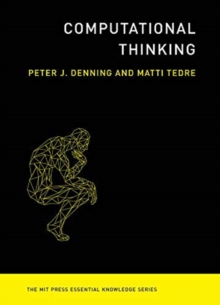
The Mind-Body Problem Paperback / softback
by Jonathan (Visiting Fellow, Yale University) Westphal
Part of the MIT Press Essential Knowledge series series
Paperback / softback
Description
An introduction to the mind-body problem, covering all the proposed solutions and offering a powerful new one. Philosophers from Descartes to Kripke have struggled with the glittering prize of modern and contemporary philosophy: the mind-body problem.
The brain is physical. If the mind is physical, we cannot see how. If we cannot see how the mind is physical, we cannot see how it can interact with the body. And if the mind is not physical, it cannot interact with the body. Or so it seems. In this book the philosopher Jonathan Westphal examines the mind-body problem in detail, laying out the reasoning behind the solutions that have been offered in the past and presenting his own proposal.
The sharp focus on the mind-body problem, a problem that is not about the self, or consciousness, or the soul, or anything other than the mind and the body, helps clarify both problem and solutions. Westphal outlines the history of the mind-body problem, beginning with Descartes.
He describes mind-body dualism, which claims that the mind and the body are two different and separate things, nonphysical and physical, and he also examines physicalist theories of mind; antimaterialism, which proposes limits to physicalism and introduces the idea of qualia; and scientific theories of consciousness. Finally, Westphal examines the largely forgotten neutral monist theories of mind and body, held by Ernst Mach, William James, and Bertrand Russell, which attempt neither to extract mind from matter nor to dissolve matter into mind.
Westphal proposes his own version of neutral monism.
This version is unique among neutral monist theories in offering an account of mind-body interaction.
Information
-
Less than 10 available - usually despatched within 24 hours
- Format:Paperback / softback
- Pages:240 pages, 1 line drawing; 2 Illustrations, unspecified
- Publisher:MIT Press Ltd
- Publication Date:30/09/2016
- Category:
- ISBN:9780262529563
£16.99
£12.59
Information
-
Less than 10 available - usually despatched within 24 hours
- Format:Paperback / softback
- Pages:240 pages, 1 line drawing; 2 Illustrations, unspecified
- Publisher:MIT Press Ltd
- Publication Date:30/09/2016
- Category:
- ISBN:9780262529563










